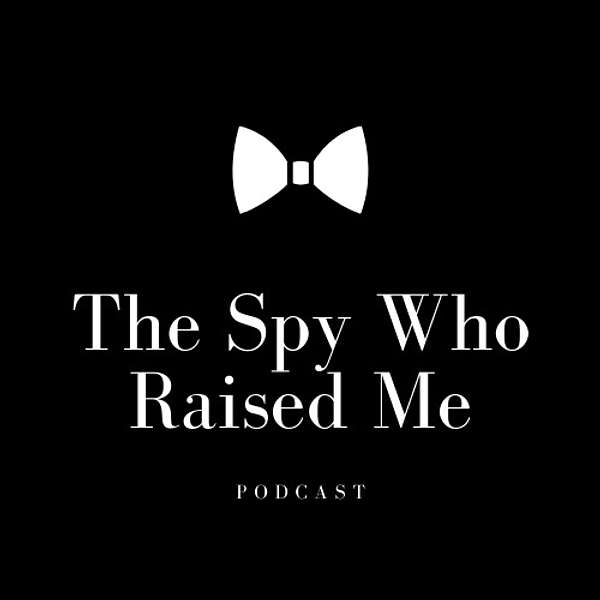
The Spy Who Raised Me Podcast
The Spy Who Raised Me Podcast
Turkey in the 1970s - Istanbul, Gallipoli and the Black Sea coast
This episode capture the conversation between Jane Craigie and her father, Iain Craigie, about three precious years based in Istanbul in the 1970s. Iain’s time was as a more senior intelligence manager with GCHQ, their ‘target’ was Russia. Iain explains the start of using satellites for intelligence gathering - courtesy of the Americans who owned them. Discussions include how the British diplomatic service viewed British intelligence in postings like Turkey where there was so much of interest and at stake.
Welcome to the spy who raised me podcast conversations between the daughter and her father. Yes, you've guessed it, he was a spy.
Unknown:Hi, I'm Jane Craigie and I'm with my dad on zoom. My dad's called Ian Craigie. And he spent most of his working life as a spy. And
Unknown:one of the things that is an enduring part of my my dad is that he's got a real sense of adventure always has had.
Unknown:And we're going to talk a little bit about his time when he was based
Unknown:Well, we were all based as a family in Istanbul, in Turkey.
Unknown:And we're also going to talk about some of the holidays that we had while we were living in Turkey. So dad, when were you in? Or when were we in Istanbul? And what was the purpose of your, your mission there? Yes, we were in Istanbul, in 1973 and 1976.
Unknown:And why were you there? What was the interest of gch Q and the British government in Turkey? Well, the back the background there was that
Unknown:Turkey is well situated.
Unknown:It's got it's got C's on three sides. And it's got Russian interest throughout the whole of that area. So really, what we were interested in was keeping an eye
Unknown:on what they were doing. And it was that period in history was a time of great change. Nate nature had been set up after the Second World War and
Unknown:the Warsaw Pact with countries like Albania, Poland, Hungary, is Germany and Bulgaria. They were part of the Warsaw Pact. So in fact, there's a lot of jostling for power bases. So at that time, so our function in Istanbul was to was to keep a lookout for what the Russians were doing, which countries they were interested in. And
Unknown:it was, it was very much to do with Russia, but also Bulgaria, some extent Romania. So we have those targets and between
Unknown:Because of the
Unknown:because of the
Unknown:programme of development that Russia
Unknown:embarked upon during that time, they were building a lot of ships, devoting a lot of
Unknown:a lot of connections with these various countries. So we were in a position where,
Unknown:across the Black Sea, we could look at what the Russians were doing, plot their progress in various places and spot check out what sort of
Unknown:armaments they were producing. And just generally keep keep a finger on the pulse of
Unknown:what we could expect in the years ahead.
Unknown:And that, so part of what you're talking about is not just a link listening function and the intelligence gathering from a from an
Unknown:Electronic points of view. So listening to radio signals etc. It was also about physically being present in that region. You know, Turkey's such a such an important country in so many ways in that it's the bridge between the East and the West. It's the bridge between the European Union now and, and the rest of the Middle East.
Unknown:And it's also a country of great wealth great resource. So not monetary resource, but but in terms of what it can produce in terms of water. And just tell us a little bit about why that physical placement in the Middle East was so important to you. From an intelligence gathering perspective. Well, listen bill was was ideally placed because the link from the Black Sea through to the Mediterranean, a has
Unknown:Through the the Bosphorus into the Sea of Marmara us and then into Mediterranean. And of course we could, we could both observe what the Russians were doing, especially with some of the ships that they were building and remember that Kiev, which was built around 1975, I think about that. Sorry to interrupt you. Yeah. So it was a board. Yes, it was, it was an aircraft carrier. And we knew that that was being built
Unknown:somewhere on the Crimean peninsula and keyboards and,
Unknown:and, in fact, the flat where we lived and Istanbul overlooks the site of the new Bosphorus Bridge. So we could we could sit on the balcony and look at but if the key was on manoeuvres, you
Unknown:do appear on the left is really towards the east, coming down the Bosphorus underneath the Bosphorus Bridge, which at that time was still being built. And so we had we had both physical confirmation of what was happening and that sense but also the surveillance in other mediums like satellite and and so on, a corroboration what was happening, but it was it was very interesting. I was very interested to from a social background because
Unknown:the talks did not like the Russians. In fact, the hated Russians and of course, the Kiev sailing down below beneath this wonderful
Unknown:bridge that was being built, was anathema to the Turkish people under workers who were who were employed on the bridge and Transcribed by https://otter.ai [This note may be incomplete because it was exported before processing was finished.]